- Home
- Barry Eisler
Zero Sum (A John Rain Novel) Page 8
Zero Sum (A John Rain Novel) Read online
Page 8
“My God.”
“Surprised?”
She looked at me closely. “No. Maybe not. I thought there was something about you. I just didn’t know what.”
I was intrigued. “What do you mean?”
“The way you were alone at the party, but also comfortable with it. Like you hold yourself, mmm, aloof. Like you know something, or feel something, or did something that separates you from the rest of society.”
That was insightful enough to unnerve me. “Fair again.”
“You saw things in the war?”
A beat went by. “And did things.”
“I’m sorry.”
“It was a long time ago.”
She smiled. “That’s no more true when you say it than it was when I did.”
I didn’t answer, and she squeezed my arm, as though to comfort me. “I think trauma can make you feel so separate from people who haven’t experienced it. As though they live in a different world.”
She had too good a read on me—much better than I had on her. I felt like I was doing randori with someone I expected was new to judo, and who turned out to be a black belt.
“Maybe there’s a silver lining,” I said, thinking of Crazy Jake. And of Tatsu, who I had known, and bonded with, in the war. “The few people who do know . . . they get it. Really get it.”
She nodded. “I can imagine that.”
“But isn’t there someone . . .” I stopped, not knowing how to finish the sentence.
“Ah, you know. It can be a little isolating, being a foreigner in this country.”
“Yeah, I know. But what about your family?”
“That’s a long and sad story. I’d rather you tell me about yours.”
We moved off the paved path, gravel crunching as we walked. There were still people around, and the park remained fairly animated. But it also felt somehow as though there was no one else but the two of us.
“Not much to tell. My mother was American. My father was Japanese. He died when I was eight, and my mother took me back to the States. So I grew up in both countries.”
“But never felt at home in either.”
That was certainly true, but I didn’t want to confirm it. “Why do you say that?”
“Just a feeling. Your mother, she’s still in the States?”
“She died. That was a long time ago, too.”
I said the last part ironically, but she stopped and looked at me anyway, the sympathy in her eyes making her almost impossibly lovely.
“Sure it was,” she said softly.
To that, I only nodded. My father had been killed in the street riots that rocked Tokyo when the Kishi administration ratified the 1960 US-Japan Security Pact. My mother died of cancer about ten years later, while I was away at war. And Maria was right, none of it was really a long time ago. I just kept it all in a box, along with memories from the war. Along with Sayaka.
We were both quiet for a moment. Then she said, “Well. Maybe that’s enough sad stories for one day?”
“You’re right. I’m sorry for pressing.”
“Not at all. I was pressing, too. When we get to know someone, there are light things we can see, and dark ones we bump up against, isn’t that so?”
“Apparently it is.”
“So! Do you want the job?”
“You think I’m ready for it?”
“No, of course not. Director Kurosawa will follow my recommendation, but he’ll still want to interview you at some point. For that, you need to know more than you do now.”
I cocked an eyebrow. “Well, if only there were someone willing to teach me.”
She laughed. “So? Can you come by again this week?”
I wasn’t sure what made sense. I wanted to see her again, that much I knew, though I also knew I was badly mixed up about why.
“This week isn’t great for me during the day,” I said, on impulse. “But how about a drink one night? I mean, there’s a lot you have to teach me, but it doesn’t all have to be at the museum, does it?”
“Oh,” she said with a little frown. “I thought your days would be okay if you’re, you know, not in a job right now.”
Shit. She had good instincts. And next time, before I opened my mouth, I’d need to be sure my story would seem consistent with whatever she already believed.
“It’s a long story. Just . . . a little tied up.”
“Maybe interviewing someplace else? How could anything compare to working with Director Kurosawa and me?”
Not for the first time, she’d given me the opportunity to confess to a lesser crime to conceal the commission of a greater one. I shook my head, relieved. “I doubt anything could compare. But . . . still.”
She looked at me with those dark eyes, and I had no idea what was going on behind them.
“Well,” she said after a moment, “actually, tomorrow night could work for a drink. The museum closes at five. Maybe after that.”
I thought quickly, trying to push aside the bolt of pleasure and excitement I felt at the prospect of a drink with her. I didn’t know many bars in Tokyo. There was Kamiya in Asakusa, of course, one of the places McGraw had used for our meetings. But that was a big, boisterous, neighborhood kind of place. Not what I had in mind. The Orchid Bar at the Okura would have been good, but she might be known there, and that could make her uncomfortable.
Back when I’d first been getting to know him, Miyamoto was always talking about bars—a passion of his. And there was one, new at the time, he’d taken a particular fancy to, because the owner was a student of sadō, the tea ceremony, as was Miyamoto himself, and had built a bar informed by biishiki, an aesthetic consciousness, an awareness of beauty. Bar Radio, that had been the name. In Minami Aoyama. I wasn’t sure it would still be there, but I could call, and if it had closed, I’d figure out something else.
“Have you heard of Bar Radio?” I said.
“I haven’t.”
“I haven’t been there, but I have a friend—the same one I mentioned at the wedding, who taught me about nen—and he loves it. So I think it would be worth seeing. If you like, I mean.”
She smiled. “Well, that’s a very attractive proposition. I’d like to see what this nen is all about. Especially in a bar.”
“So would I. It’s in Minami Aoyama. What time is good for you?”
“Why don’t we say six o’clock? I’ll just take the train to Omotesando.”
I had a sudden image of myself riding Thanatos from Ueno to Minami Aoyama through twilight Tokyo, Maria on the saddle behind me, her arms around my torso. But I’d left Thanatos ten years ago by the lotuses of Shinobazu Pond.
“What is it?” she asked.
That jarred me from my reverie. “Oh, nothing. I was just . . . remembering something from a long time ago. I used to have a motorcycle here. I would have picked you up.”
“Ah, that sounds lovely. I actually have a little Vespa. But to Minami Aoyama, maybe the train is easier.”
“Okay. So . . . six o’clock tomorrow.”
There was an awkward pause. Then she smiled and held out her hand. I would have preferred one of those Italian double cheek kisses, but I guessed the main thing was the drink.
We shook. “Ciao,” she said, and headed back toward the museum.
I watched her go, thinking No good can come of this, John.
I really should have listened.
chapter seven
I called Oleg that evening from a payphone. He had no leads on Sugihara. That was fine with me. Anything that delayed the endgame and gave me more time to figure out how to take out Victor was a welcome development.
I pressed him again about a gun. I didn’t think he’d go for it, but I wanted to be able to use the refusal as an excuse for not being able to quickly drop Sugihara.
“Gun won’t happen,” Oleg told me. “Stop asking.”
“Why? It would make this whole thing a lot easier. And faster.”
“You don’t need gun.”
&n
bsp; “Yeah, but—”
“You want to kill guy? You go to hardware store. You buy rat poison, okay? You know rat poison?”
“I know rat poison, yeah.”
“You dip knife in rat poison. Any knife. You don’t need long blade. You come behind guy, you stab. Three, four, five times. Kidney. Liver. All over. Happen very fast. Guy can’t stop you. Probably, guy bleeds to death. But even if ambulance is right there, doesn’t matter. Because rat poison. Now stop asking stupid questions.”
“I don’t—”
“And another thing. You and Kobayashi. Twenty stitches for me from that. You’re lucky Victor thinks you can be useful. But if he changes mind, you and I have long talk.”
He hung up. For a moment, I stood staring at the phone.
Long talk? I don’t think so, asshole. When I have that kind of talk, I keep it short. And right to the point.
I put the receiver back in the cradle and walked away, imagining visiting a hardware store exactly as Oleg had suggested. And then setting up outside the Kasumigaseki office until Victor emerged.
It was a pleasing thought, but not realistic. Sugihara might have some security, but he was no hard target. Victor, on the other hand, was a man who knew he had a lot of enemies, and understood he had to live in a way that would deny them opportunities. Not very likely he would just blithely stroll out of his office one evening to smell the autumn air, with no escort, and pause without checking his surroundings while I moved in behind him. Not impossible that it could work, but high-risk. I wasn’t that desperate.
Though I supposed that could change, if I didn’t play things right.
That night, I walked from the hotel in the direction of Zōshigaya Cemetery. Once I was clear of giant Ikebukuro Station, the area quickly became residential, all dim lamplights and narrow streets and old wooden houses fronted by lovingly tended potted plants. I passed a few people shuffling along in slippers to the neighborhood sentō for a post-work soak. The ritual of the public bath was one of the things I loved about Japan, and that made me hate my birthplace for not loving me back. Still, the quiet helped to settle my mind.
The cemetery was even better—empty, dark, and silent. I found a tree among the markers and sat with my back to it, listening to the crickets, feeling like I should be holding and contemplating a skull. And maybe in a sense I was, because this was the very spot where, ten years earlier, I’d put a bullet in McGraw’s head. The memory of that moment was satisfying, even comforting. I realized I had probably come here for more than just the solitude and silence.
I tried to step back, to see the board rather than simply the pieces. Not just Victor, but the organization around him. And his place in it.
They didn’t seem to have a particularly large crew. Both times I’d been to Victor’s office, it had been the same people. And Victor had delegated an important job to a fuckup like Kobayashi. Who Victor had been comfortable getting rid of only once he knew he had a new guy to replace him.
This felt like a squad-sized unit to me. Not even a platoon. Certainly not a company.
Organizationally, Victor was the principal, Oleg the muscle, enforcer, and overall right-hand man. Victor had met me at his office so he could assess me, and then smoothly turned me over to Oleg, who was now acting as a buffer, inhibiting direct access to Victor. It was obvious a significant part of Oleg’s job, his function, was to protect Victor.
But who was protecting Oleg?
I chewed on that.
Losing someone like Oleg would scramble Victor’s organization. Likely force him to change his routines, make him more vulnerable.
It wouldn’t be easy. But if I could make it work, it could open up one of Victor’s flanks. Not for long, probably, but maybe long enough.
What was missing, though, was intel. And intel meant Tatsu.
The last time I’d seen him, he told me he thought we would work together again. But I didn’t think what he had in mind was exactly a partnership. Tatsu would be in charge. Or, at a minimum, he’d demand something in return for whatever help he offered. I didn’t want to put myself in a position where I would have to provide it.
But maybe my reluctance was stupid. The situation was reasonably stable at the moment, but that could change at any time. If it did, I’d want to be ready, not scrambling. I could talk to Tatsu, tell him a little, feel him out, see how much he’d be willing to offer, and how much he’d require in return.
I knew it was the right call, but still it felt fraught. Tatsu was a wily bastard, with great cop instincts coupled with an unusually flexible attitude regarding means and ends. But the cop instincts I’d have to risk. It was the flexibility I needed right now.
chapter eight
I headed back to Ikebukuro Station and called Tatsu at home. At that hour, a lot of cops would have been out for a post-work drink with their cronies, but I knew Tatsu. When pressed, he would respond gruffly, but he loved his wife and doted on his daughters, and I knew nothing gave him more pleasure than a quiet evening at home with them.
His wife answered. I said I was an old friend and asked for him. A moment later, he was on the phone with a curt “Hai.”
“It’s Rain,” I said in Japanese. “It’s been a while.”
There was a pause. “Yes, it has,” he said. “Why do I sense this isn’t a social call?”
“Well, it’s also a social call.”
“Of course. You are back in Tokyo?”
“I am. And it feels like I never left.”
Based on our dealings ten years ago, he would know exactly what that meant.
“Indeed.”
“So . . . if you have time at some point, it would be great to see you.”
“I imagine sooner would be better than later.”
“Well, I do miss you.”
I pictured him smiling. No one needled Tatsu—he was too formidable a presence for that. But somehow I got away with it, and I imagined he found it refreshing.
“It’s kind of you to say,” he replied. “Perhaps we could enjoy a beer tonight.”
“I’d be grateful for that. Are you still in Nihonbashi? Name a place you like, and I’ll be there in a half hour.”
He gave me an address in Yūrakuchō, not far from his neighborhood. It was a straight shot on the Yamanote, and I arrived to find an old-school izakaya, the Japanese institution dedicated to cheering tired salarymen on their way home from work with ice-cold beer and yakitori chicken and the ear of a sympathetic masutaa at the bar. This one was sandwiched under the Yamanote tracks, and had the feel of a secret subterranean haven—a low ceiling, cramped tables, the rumbling of overhead passing trains in lieu of recorded music. Steam rose from an open stove behind the bar, the sounds of fat dripping and popping on the charcoal below, and the air was pungent with the smell of grilled meat. There were about forty people jammed inside, laughing and talking, and it took me a moment to confirm that Tatsu hadn’t arrived yet. A waitress saw me and cried out, “Irasshai!”—Welcome!—and I bowed slightly to acknowledge the greeting. I found a table alongside a wall, ordered us each a nama beer, and waited.
Five minutes later, I saw him come in. He’d aged a little since the last time I’d seen him, with some gray scattered through the black hair, and he’d put on some weight. But the gait—a bulldog barely held back by an invisible leash—was impossible to miss. And ditto the smile, which always seemed like it had overcome some urge to suppress it, when he saw me.
I stood and watched as he worked his way through the tables. “Rain-san,” he said when he’d reached me. And then, as though responding to some contradictory inner thought, he added, “But it’s always good to see you.”
I bowed, then shook his hand. Maybe it was that we’d first known each other overseas. Or maybe it was that he was so Japanese he made me feel American by comparison. But I always liked to shake his hand.
We squeezed into our seats and I raised my mug. “Kanpai.” He raised his own and grunted in agreement, and we clinked the glass
es and drank.
He set down his mug, let out a long sigh, and wiped his chin. “Well, then. What kind of trouble have you gotten yourself into this time?”
“You know, Tatsu, if I were a little more sensitive, I might be hurt by what you’re implying.”
He gave me a cop stare that might have caused someone who didn’t know him to confess to the Great Chicago Fire.
“I mean, never even a ‘How’ve you been? How’s life?’”
He sighed. “How’ve you been? How’s life?”
“Fine, thanks for asking. And you?”
“Good.”
“Your wife? Your daughters?”
He sighed again, but I thought I detected the trace of a reluctant smile. “Fine. Teenage girls can be a puzzle. But”—he paused, and the smile broke through—“very fine. Thank you.”
I returned the smile. “I’m glad. Thanks for coming out tonight to meet me. And if you deny you’d rather be home with them, we’re just going to have an argument.”
He grunted a laugh. “Okay, okay. Now tell me what kind of trouble you’re in. Nothing to do with Mad Dog Fukumoto, I trust? You know he’s long gone.”
He was talking about the yakuza kingpin’s son I had taken out ten years earlier—the reason I’d had to flee Tokyo, leaving my bullet-ridden “corpse” floating in Shinobazu Pond. But the son had long since joined the father, and I didn’t expect the underlings who had deposed him would recognize me even if our paths crossed, or care one way or the other.
I took a swallow of beer, then leaned forward so I could speak more quietly. The tables were mostly full, and conversation around us was loud enough to provide good cover. “I don’t even know where to start. Maybe by asking you a question. You know a guy named Victor? I don’t even know his last name, but—”
“Karkov. Victor Karkov. Half-Russian, half-Japanese. A former colonel in Spetsnaz, Russian Special Forces. Arrived in Tokyo a little over a year ago. The yakuza families are still reeling from it. Unless I’m mistaken, of course, and you’re referring to a different Victor.”
I knew Tatsu made it a point to be knowledgeable about these things, but still I hadn’t expected him to be quite that dialed in.

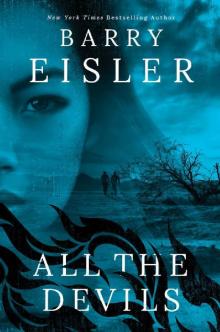 All the Devils
All the Devils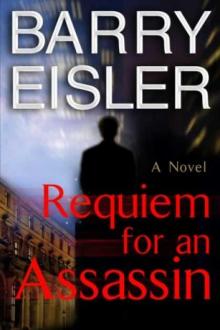 Requiem for an Assassin
Requiem for an Assassin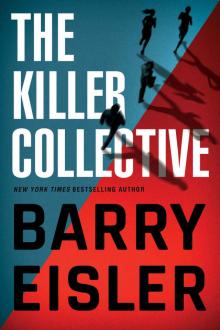 The Killer Collective
The Killer Collective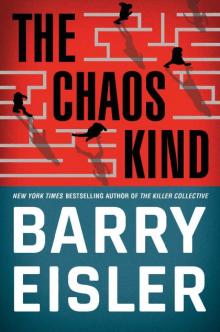 The Chaos Kind
The Chaos Kind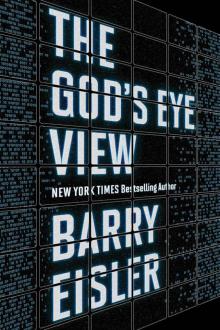 The God's Eye View
The God's Eye View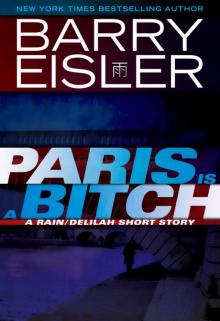 Paris is a Bitch
Paris is a Bitch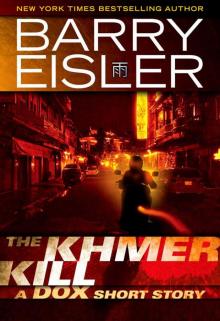 The Khmer Kill: A Dox Short Story (Kindle Single)
The Khmer Kill: A Dox Short Story (Kindle Single)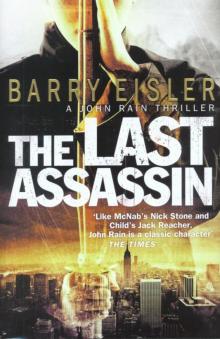 The Last Assassin
The Last Assassin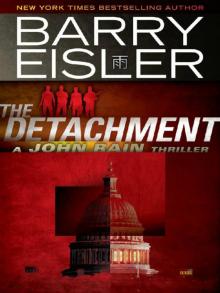 The Detachment
The Detachment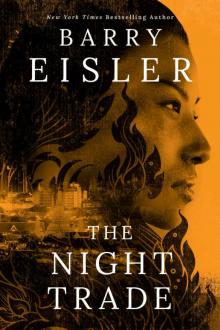 The Night Trade (A Livia Lone Novel Book 2)
The Night Trade (A Livia Lone Novel Book 2)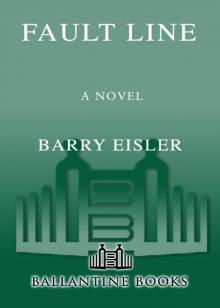 Fault Line
Fault Line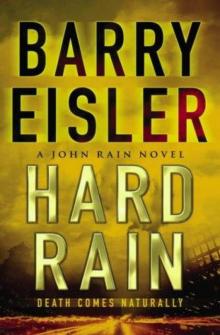 Hard Rain
Hard Rain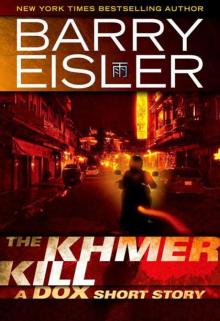 The Khmer Kill_A Dox Short Story
The Khmer Kill_A Dox Short Story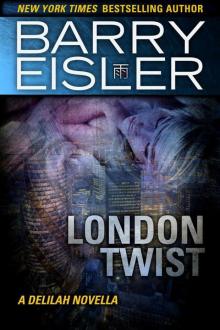 London Twist: A Delilah Novella
London Twist: A Delilah Novella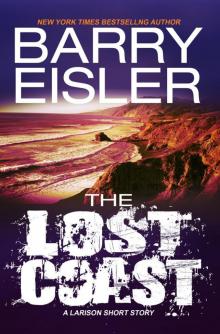 The Lost Coast
The Lost Coast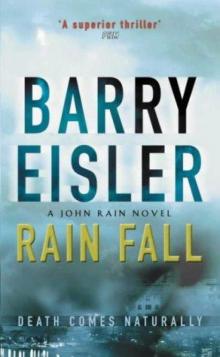 Rain Fall
Rain Fall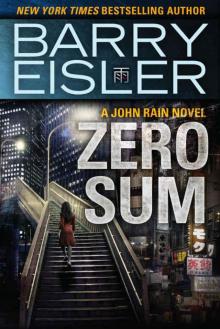 Zero Sum
Zero Sum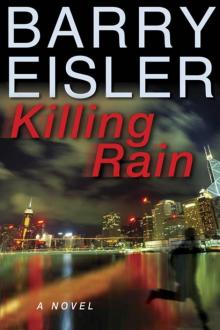 Killing Rain
Killing Rain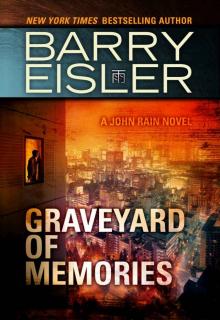 John Rain 08: Graveyard of Memories
John Rain 08: Graveyard of Memories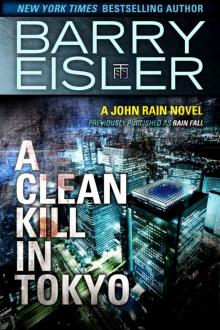 A Clean Kill in Tokyo (previously published as Rain Fall)
A Clean Kill in Tokyo (previously published as Rain Fall) Inside Out: A novel
Inside Out: A novel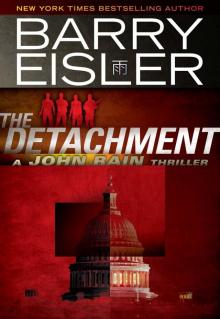 John Rain 07 - The Detachment
John Rain 07 - The Detachment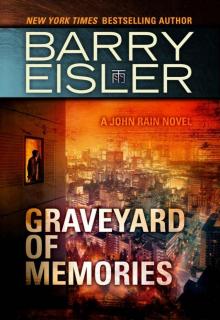 Graveyard of Memories
Graveyard of Memories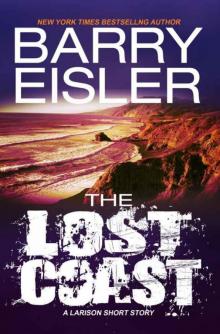 The Lost Coast -- A Larison Short Story
The Lost Coast -- A Larison Short Story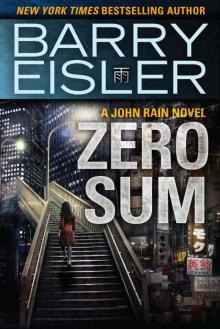 Zero Sum (A John Rain Novel)
Zero Sum (A John Rain Novel)